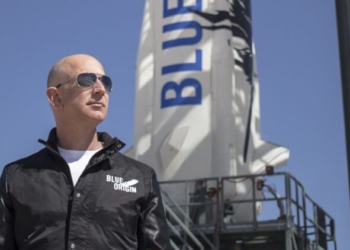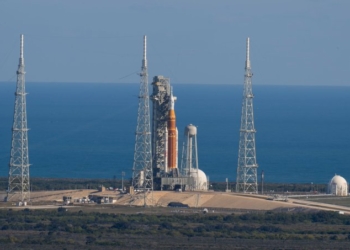New Delhi: Even as NASA is expected to make a final call on Saturday to plan the return of Indian-Origin Sunita Williams and Butch Willmore to Earth from the International Space Station (ISS), health experts pointed the risks to the human body because of prolonged stay in microgravity.
Williams and Willmore became the first to ride Boeing’s Starliner spacecraft on June 5. The eight-day mission to the ISS has now extended to more than two months in space for the duo. NASA officials have expressed concern that technical glitches on Starliner may pose risks while de-orbiting on Earth.
The space agency is expected to decide on Starliner’s safety levels. If it deems Starliner unfit, the astronaut duo will likely return onboard a SpaceX Dragon capsule in February 2025.
However, the extended mission is likely to increase their exposure to microgravity and cause space anaemia, health experts said.
Microgravity can lower the count of haemoglobin and red blood cells (RBCs) — essential for the transport of oxygen and nutrients throughout the body.
“If astronauts develop anaemia during their space missions which could be for long durations, there could be a significant impact on their energy, strength, and endurance,” Dr. Anoop P, Sr. Consultant – Haematology, Paediatric Haemato-Oncology & Bone Marrow Transplant, at Aster RV Hospital, Bengaluru, told IANS.
Sequestration and haemolysis may be considered as the main causes of space anaemia which means the red blood cells are destroyed prematurely, he explained.
The net effect is that more red blood cells are destroyed than produced while in space. This condition can critically affect the health of astronauts not only during extended stays in space but also upon their return to Earth, the expert said.
As per NASA, the human body on Earth creates and destroys about 2 million red blood cells every second.
However, astronauts destroy 54 per cent more RBCs, or 3 million per second, during six-month space missions, revealed a 2022 study published in the journal Nature Medicine.
The study showed that the effects may be felt only after landing on Earth.
“In space, astronauts may exhibit reductions in blood volume and orthostatic tolerance, as well as decreased aerobic capacity and high probability of arrhythmias. While the cardiovascular system seems to be working fine under space and the body does not require as much of an effort from the heart (still a muscle) in microgravity,” Dr. Irfan Khazi Javeed, Consultant – Internal Medicine, Manipal Hospital, Bengaluru, told IANS.
Anoop suggested proper exercise regimens to help maintain the RBC levels, regular monitoring of blood parameters during the mission, and having access to a diet rich in iron and other essential nutrients that help maintain adequate haemoglobin levels and support the production of red blood cells are the possible solutions that could help enhance their health conditions while on their space mission.
“Ongoing studies into the mechanisms of space anaemia are critical, as understanding the underlying causes, such as increased haemolysis and the impact of microgravity on bone marrow function, can lead to the development of targeted therapies and strategies to prevent anaemia during long-duration space missions,” he said.
Williams, selected as an astronaut by NASA in 1998, is a veteran of two space missions — in 2006 and 2012. Born to Indian-American parents, she currently also holds the record for the longest time spent in space by a woman — 322 days.
The latest mission is expected to create a new record for her.
(IANS)
















